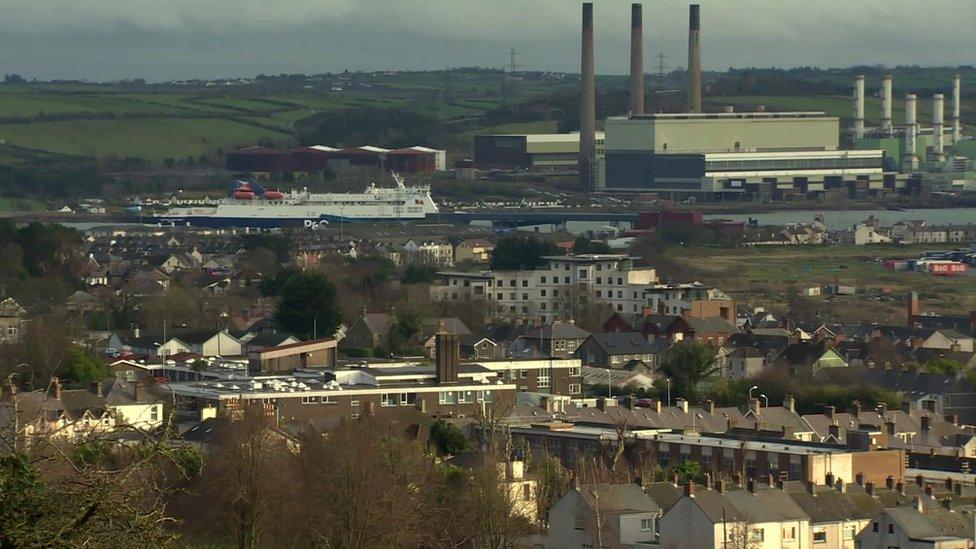Brexit: Contractors race to finish Border Control Posts at NI ports
- Published
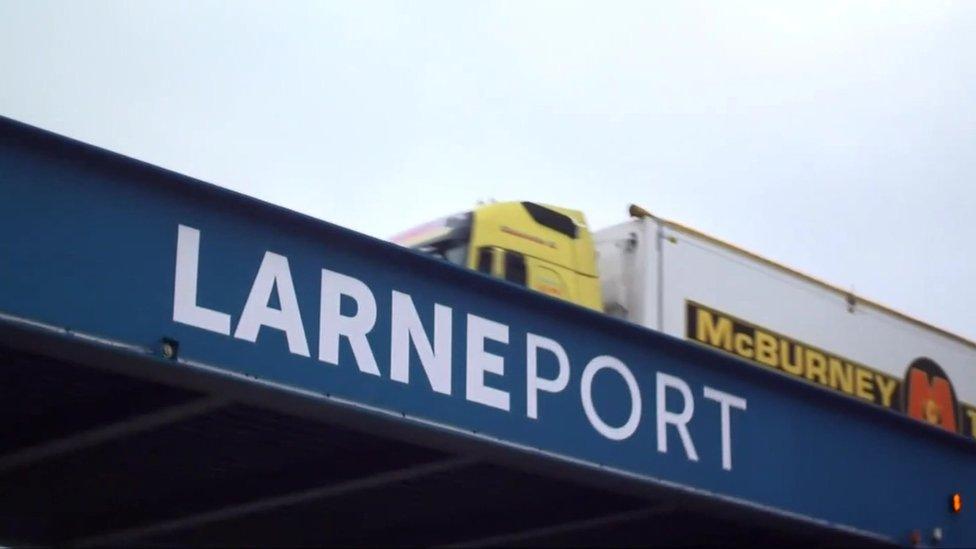
At Shed 66 in Larne Harbour the Irish Sea border is taking shape.
This nondescript warehouse is the setting for a temporary Border Control Post (BCP).
It's being built in time for the end of the Brexit transition period on 31 December.
Contractors are racing to finish similar facilities in Belfast and Warrenpoint.
Last week we learned the details of how these posts will be used when the new border starts operating in less than three weeks.
On Wednesday Michael Gove, the UK cabinet minister leading Brexit, updated the House of Commons.
He had details of an agreement with the EU on how the new border arrangements will be implemented.
There were significant wins to report for the UK.
The EU had dropped a previous insistence that goods leaving NI for GB should have an exit declaration.
The prospect that many goods from GB could face a tariff when entering NI had been largely resolved through a new trusted trader scheme.

Michael Gove outlined the contents of the agreement in the House of Commons
But it was sausages that gave Mr Gove his sound bite.
The UK had received a derogation from EU food safety rules which allows GB-made sausages and other chilled meat products to be sold in NI for at least the next six months.
"British sausages will continue to make their way to Belfast and Ballymena in the new year," he told MPs.
There was another "grace period" to report: other GB food products entering Northern Ireland will be exempt from expensive new certification processes for the first three months of 2021.
What was a bit less clear was that, even with these derogations, food products entering NI from GB will still have to come through a BCP from 1 January.
Vets at ports
The details are set out in a document published on Thursday.
The relevant food products must be labelled: "These products from the United Kingdom may not be marketed outside Northern Ireland."
They must be presented at a BCP where they are "submitted to a systematic documentary check and to a risk-based identity check on a selection of items".
It was a more low-key performance in Westminster, also on Wednesday, where we learned what this will amount to in practice.
In front of the Northern Ireland Affairs Committee were the senior officials from Stormont's Department of Agriculture and Rural Affairs (Daera).
They will have operational responsibility for the smooth running of the BCPs.
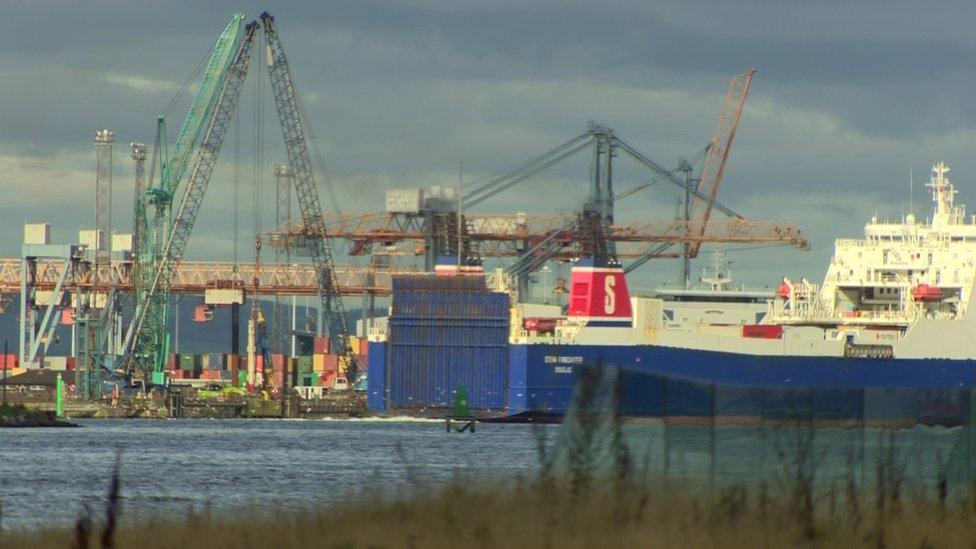
Border Control Posts are being built at Northern Ireland's ports
Robert Huey, the chief vet, said they were planning to run the Belfast and Larne facilities 24/7 with business hours at Warrenpoint and Foyle.
Larne and Belfast will each have around 25 vets working in shifts.
Lorries waiting
Denis McMahon, the permanent secretary at Daera, said there were two specific measures aimed at minimising the time lorries would have to spend at BCPs.
Firstly checks on documents will be carried out "remotely and electronically" by Daera staff.
Secondly "identity checks" of consignments will be carried out at GB ports prior to lorries boarding ferries.
"We have arrangements in place with Cairnryan and Birkenhead with others to follow shortly," Dr McMahon said.
Dr Huey said there was the real prospect of lorries having to wait to be inspected due to the limited nature of the temporary facilities.
"There aren't as many unloading bays as I would like," he warned.
"Will it be absolutely beautiful on day one? Hopefully, because it's a bank holiday and there won't be many lorries coming in. But day four or five, we'll have to work our way through that."
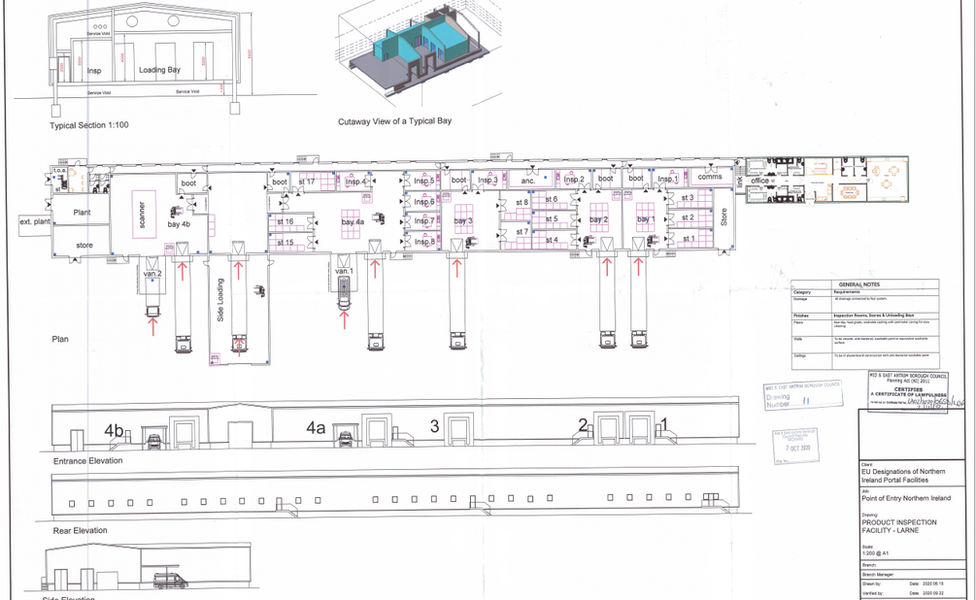
Plans for the food inspection facility at Larne port
But he had good news about how often intrusive physical checks of goods will have to be carried out.
He explained that while EU rules set out the frequency of physical checks, they also allow for local risk assessments.
"A risk assessment was carried out and that indicated that with retail goods it is very low," he said.
"That allows us to reduce the frequency of checks for those goods, for supermarkets, to close to zero. Or perhaps even zero.
"That's the key that makes us confident we can deliver."
He also expressed optimism that over the course of 2021 any teething troubles would recede, even after the grace periods end.
"In nine months or a year's time we'll be in brand new facilities," he said.
"Our staff will have bedded in but the most important thing is that the traders will have become accustomed to the processes."
Related topics
- Published9 December 2020
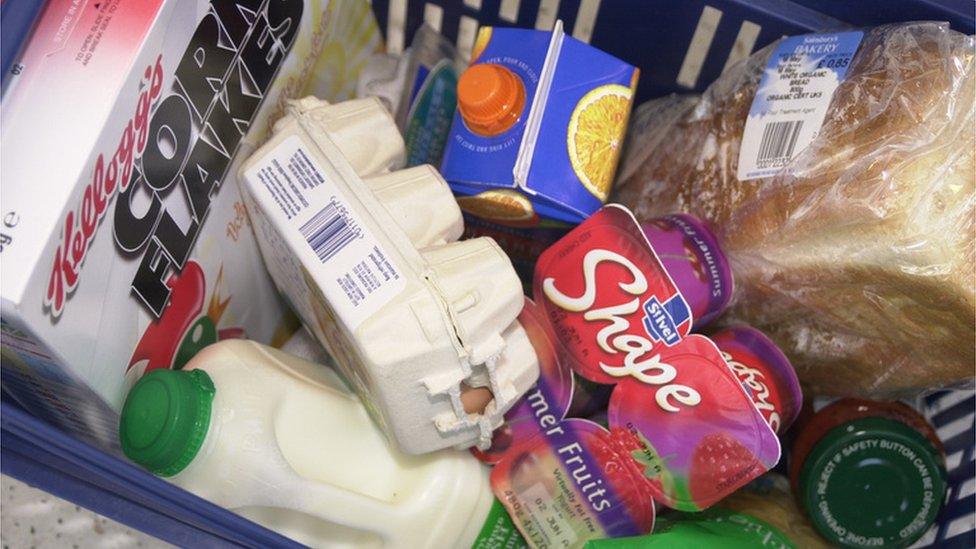
- Published2 February 2024

- Published12 December 2020

- Published12 December 2020
